|
In This Issue:
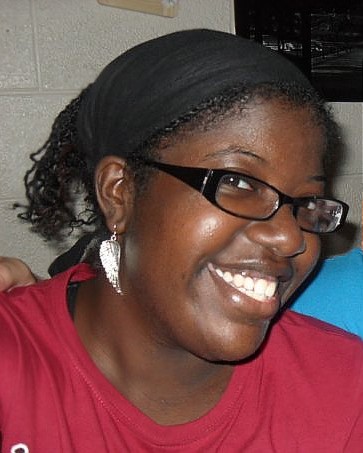
Back in Black
by: Fannetta Jones
When the month of February comes around, there are, inevitably,
a few things that come to mind: Lincoln’s Birthday, President’s
Day, Valentine’s Day, and, of course, Black History Month. We
always try to take this time and acknowledge the contributions
of African Americans to our country and this year is no
different. However, there are always certain individuals that
are celebrated or that “come to mind.” So, with that said, here
are a few individuals that have made major contributions to
literature as we know it, but that you may not know too much
about:
Charles Chesnutt (1858-
1932)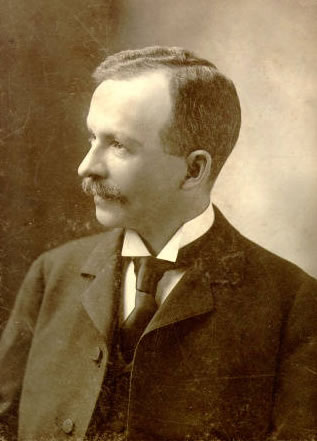
Upon viewing Charles
Chesnutt, he is not an individual that anyone would typically
associate with African-American literature. However, in being
born of slave ancestry, this author writes of living a life on
the color line and what it is like growing up and trying to find
identity in the midst of racial turmoil. This author also served
on the General Committee for NAACP (National Association for the
Advancement of Colored People) as well as working with the likes
of Booker T. Washington and W.E.B. DuBois. Chesnutt was much
respected in his lifetime and his works are still studied in
many literature classes from high school through graduate
studies. Some of his more popular short stories include “The
Wife of His Youth” and “The
Goophered Grapevine.”
Zora Neale Hurston (1891-
1960)
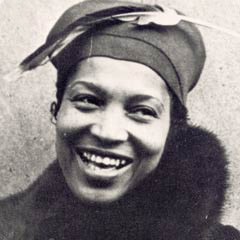
While mostly known for
her novel
Their Eyes were Watching God, Zora Neale Hurston was an
anthropologist and a storyteller. As evident in Their Eyes,
Hurston was very committed to chronicling the African American
experience as “true to life” as possible. This led to her use of
dialect and colloquial language throughout many of her texts.
Another of her more famous books is
Mules and Men. Hurston wrote many works through the
Harlem Renaissance as well. Despite her fame, Hurston suffered
much financial burden and died of a stroke in a welfare home.
She was buried in an unmarked grave until given a “proper”
burial by Alice Walker.
James Weldon Johnson (1871-
1938)

James Weldon Johnson was a
lawyer, politician, and a civil rights activist, but he was most
known for his writing. His works were highly celebrated and
regarded through the Harlem Renaissance and he was a well
respected individual. Although he is well known for his book
The Autobiography of an Ex- Colored Man, one piece of
literature that he is most known for, is his poem “Lift
Every Voice and Sing," which was later turned into a song
and became the Black National Anthem.
Toni Morrison (1931 - )
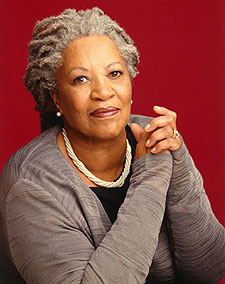
When it comes to writers that
have transcended racial barriers with their works, Toni Morrison
should be at the top of the list. Her literature has been
revered and studied by people of various ages and races. In
addition to this, at the age of 79, Morrison is still producing
great works and even released a new book as recently as last
year, titled
A Mercy. She is well versed in the works of others as
well, having written a thesis on suicide in the works of William
Faulkner and Virginia Woolf. She has many great works such as
Beloved,
Song of Solomon, and Sula. If these works
weren’t enough to get her the proper acclaim, she was the
recipient of the Nobel Prize for Literature in 1993.

A Living Evolving Creature: The English Language from the
Perspective of a Foreign Exchange Student
by: Alex Nall
In the past few issues of The Printing
Press, we have explored the English major from the country roads of
North Henderson to the urban cityscape of Chicago. Now, in our third
and final installment in this series, we interview an English major
from a foreign country. The man I interviewed is not only new to the
college campus lifestyle, but to another part of the world as well.
Carlos Ernesto Mora Sandi arrives to us from
San Jose, Costa Rica. He is twenty-seven-years-old and is visiting
the United States for the first time in his life. He is an English major and says that Monmouth
College has “exceeded my expectations”. When I asked Carlos why he
came to this country to pursue a degree in English, he told me: “I
have always wanted to do the foreign exchange program and found the
opportunity to do it in the United States very easily. I got a full
scholarship and have been taking advantage of every opportunity
here”. When asked why he chose to English to be his field of study,
considering he’s only been speaking it since he arrived here in
Mid-August, Carlos had this to say: “I have been around the language
all my life. I have heard English through music, movies and from my
uncle, who spoke it fluently, so I knew how to speak it when I came
here.” This background made English the easiest subject for him to
study. “Once I started studying it, I immediately loved it.” Carlos
says that he is still unsure of what he wants to do with a master
degree in English but has said that he has shown interest in taking
his knowledge of English back to his hometown and using it to teach,
translate or help with web-page designs into English: “There is a
high demand for the English language in my country, and if I help my
country by using the knowledge I have learned here then I will be
satisfied.”
time in his life. He is an English major and says that Monmouth
College has “exceeded my expectations”. When I asked Carlos why he
came to this country to pursue a degree in English, he told me: “I
have always wanted to do the foreign exchange program and found the
opportunity to do it in the United States very easily. I got a full
scholarship and have been taking advantage of every opportunity
here”. When asked why he chose to English to be his field of study,
considering he’s only been speaking it since he arrived here in
Mid-August, Carlos had this to say: “I have been around the language
all my life. I have heard English through music, movies and from my
uncle, who spoke it fluently, so I knew how to speak it when I came
here.” This background made English the easiest subject for him to
study. “Once I started studying it, I immediately loved it.” Carlos
says that he is still unsure of what he wants to do with a master
degree in English but has said that he has shown interest in taking
his knowledge of English back to his hometown and using it to teach,
translate or help with web-page designs into English: “There is a
high demand for the English language in my country, and if I help my
country by using the knowledge I have learned here then I will be
satisfied.”
Carlos has also shown an interest in jazz
music since he arrived in the States, saying that the people who
play in the parks of New York City is one of his favorite memories
here. “When I was in New York City, I felt like I was home. It is
such a big place.” Since he arrived here, Carlos has also visited
Kansas City and St. Louis. His favorite book is
A Hundred Years of Solitude by Gabriel Garcia Marquez, but
he also read
The Great Gatsby by F. Scott Fitzgerald and said that the
description of fish in Hemingway’s
The Old Man
and the Sea made him salivate for a fresh seafood meal.
The last question I asked Carlos dealt with how
important language was to him in his new environment and what he
thought he and his fellow English-majors could learn from it in the
twenty-first century. He thought for a moment and then said, “I
believe that language is a living creature. It is in constant
evolution and people need to learn other languages. If they do this,
they will be able to experience new things and learn from other
cultures."

A Year to Remember: 1859
by: Noelle Templeton
1859 was a significant year for the world. Billy the
Kid was born, Alexis de Tocqueville died, Londoners heard Big Ben’s
first chimes, and Oregon joined the Union. Dickens published
A Tale of Two Cities,
and as we all know, Darwin’s
Origin of the Species
was released as well, but the Darwinpalooza event held on Thursday,
February 18, concentrated on three other works that were published
that year. Students, faculty, and staff crowded into the Highlander
Room to see Professors Simon Cordery, Rob Hale, and Dick Johnston
present three different pieces of literature and their significance
in 1859.
 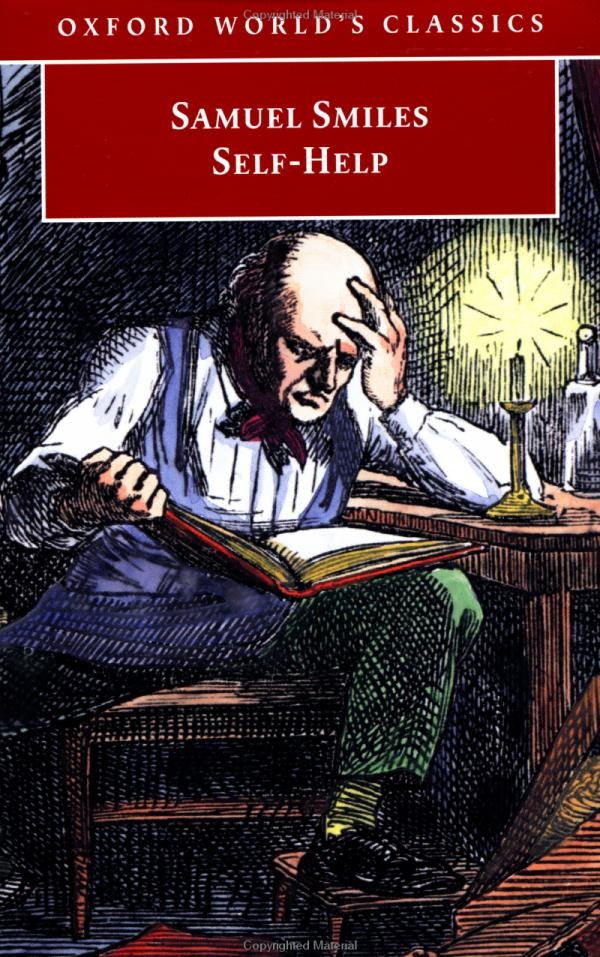 Associate
Professor of History Simon Cordery began the discussion by
explaining the world in 1859 was transitioning from the early to the
mid-Victorian era. He briefly addressed the political and
technological advancements taking place that year before drawing our
attention to an important literary work: Samuel Smiles’
Self-Help.
Smiles, who also worked as a doctor, newspaper editor, and secretary
for the railways, used his book to encourage individualistic
behavior and the development of character, two important features
during the rise of labor unions and the Industrial Revolution. Associate
Professor of History Simon Cordery began the discussion by
explaining the world in 1859 was transitioning from the early to the
mid-Victorian era. He briefly addressed the political and
technological advancements taking place that year before drawing our
attention to an important literary work: Samuel Smiles’
Self-Help.
Smiles, who also worked as a doctor, newspaper editor, and secretary
for the railways, used his book to encourage individualistic
behavior and the development of character, two important features
during the rise of labor unions and the Industrial Revolution.
 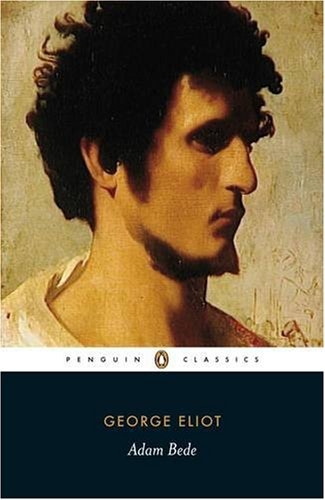 Next
to address the crowd was our very own Rob Hale; he began with a
review and then plot summary of George Eliot’s
Adam Bede,
also known as the “Masterpiece of the Century.”
Bede,
a story of unrequited love, class disparity, and tragedy, represents
three dominant virtues from the highlighted year: realism,
morality, and freedom. Like Smiles, Eliot wrote of individual
freedom and secular, rather than religious, morality. Next
to address the crowd was our very own Rob Hale; he began with a
review and then plot summary of George Eliot’s
Adam Bede,
also known as the “Masterpiece of the Century.”
Bede,
a story of unrequited love, class disparity, and tragedy, represents
three dominant virtues from the highlighted year: realism,
morality, and freedom. Like Smiles, Eliot wrote of individual
freedom and secular, rather than religious, morality.
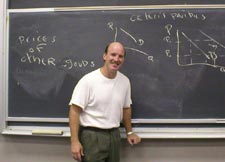 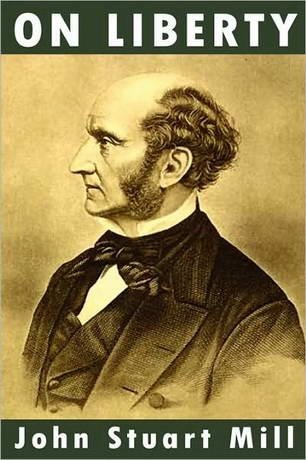 Last
to take the podium was Dick Johnston, Associate Professor of
Political Economy and Commerce. His explication of
On Liberty
by John Stuart Mill included similar themes highlighted by the
previous two speakers, namely freedom, individuality, and morality.
Mill encouraged expressing opinions, challenging the status quo, and
learning from one’s mistakes. Last
to take the podium was Dick Johnston, Associate Professor of
Political Economy and Commerce. His explication of
On Liberty
by John Stuart Mill included similar themes highlighted by the
previous two speakers, namely freedom, individuality, and morality.
Mill encouraged expressing opinions, challenging the status quo, and
learning from one’s mistakes.
Darwin and his contemporary shared values and practices, as
Professor Hale identified. All four writers were interested in
close observation, embraced secular morality, practiced
free-thinking skepticism while encouraging individualism, and
despite interacting in elite, intellectual circles, they had a
common interest in the disadvantaged. Even 151 years after the
publication of their works, the ideas of Smiles, Eliot, Mill, and
Darwin are strongly influential.
Quotables

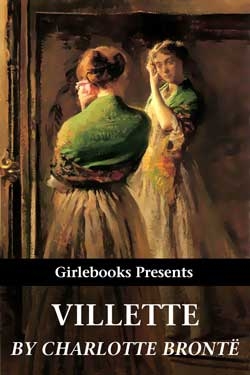 "Happiness
is not a potato, to be planted
in mould, and tilled with manure." "Happiness
is not a potato, to be planted
in mould, and tilled with manure."
(Charlotte Bronte’s
Villette) –Rob
Hale
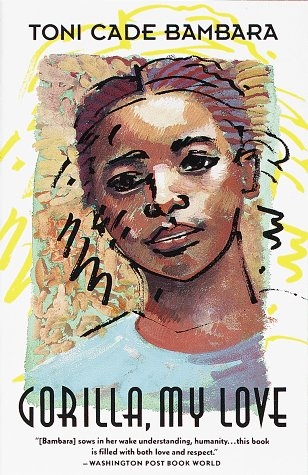
"This here
the colored matron Brandy and her friends call her Thudnerbuns. She
do not play. She do not smile. So we shut up and watch the simple
ass picture." - (Toni Cade Bambara's
Gorilla,
My Love) –Danny Weber
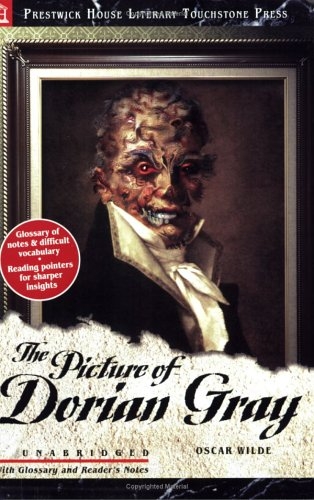 “Experience
was of no ethical value. It was merely the name men gave to their
mistakes” (Oscar Wilde's
The Picture of Dorian Gray)
-Noelle Templeton “Experience
was of no ethical value. It was merely the name men gave to their
mistakes” (Oscar Wilde's
The Picture of Dorian Gray)
-Noelle Templeton
"A dog has no use
for fancy cars or big homes or designer clothes. Status symbol means
nothi ng
to him. A waterlogged stick will do just fine. A dog judges others
not by their color or creed or class but by who they are inside. A
dog doesn't care if you are rich or poor, educated or illiterate,
clever or dull. Give him your heart and he will give you his. It was
really quite simple, and yet we humans, so much wiser and more
sophisticated, have always had trouble figuring out what really
counts and what does not. As I wrote that farewell column to Marley,
I realized it was all right there in front of us, if only we opened
our eyes. Sometimes it took a dog with bad breath, worse manners,
and pure intentions to help us see." ng
to him. A waterlogged stick will do just fine. A dog judges others
not by their color or creed or class but by who they are inside. A
dog doesn't care if you are rich or poor, educated or illiterate,
clever or dull. Give him your heart and he will give you his. It was
really quite simple, and yet we humans, so much wiser and more
sophisticated, have always had trouble figuring out what really
counts and what does not. As I wrote that farewell column to Marley,
I realized it was all right there in front of us, if only we opened
our eyes. Sometimes it took a dog with bad breath, worse manners,
and pure intentions to help us see."
( John
Grogan
Marley and Me) -Rissa Inman
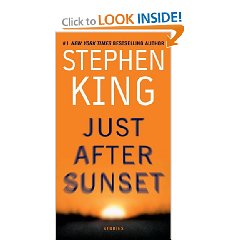 "I must have kept backing up. I don't remember doing it; I
just remember thinking that I was looking at the head of
some grotesque monster from the outer darkness. And thinking
that where there was one, there would be more. Eight stones
would keep them captive--barely--but if there were only
seven, they'd come flooding through from the darkness on the
other side of reality and overwhelm the world. For all I
knew, I was looking at the least and smallest of them. For
all I knew, the flattened snakehead with the pink eyes and
what looked like great long quills growing out of its snout
was only a baby.
"I must have kept backing up. I don't remember doing it; I
just remember thinking that I was looking at the head of
some grotesque monster from the outer darkness. And thinking
that where there was one, there would be more. Eight stones
would keep them captive--barely--but if there were only
seven, they'd come flooding through from the darkness on the
other side of reality and overwhelm the world. For all I
knew, I was looking at the least and smallest of them. For
all I knew, the flattened snakehead with the pink eyes and
what looked like great long quills growing out of its snout
was only a baby.
It saw me looking."
(In "N." by
Stephen King, from his collection entitled
Just After Sunset:) - Alex Nall
"Alack! why am I sent
for to a king
Before I have shook off the regal thoughts
Wherewith I reign'd? I hardly yet have learn'd
To insinuate, flatter, bow, and bend my knee.
Give sorrow leave awhile to tutor me
To this submission. Yet I well remember
The favours of these men: were they not mine?
Did they not sometime cry 'All hail!' to me?
So Judas did to Christ: but he, in twelve,
Found truth in all but one; I, in twelve thousand, none."
(Richard
II, Act 4.1.166-75) -Fannetta Jones
Survey Says!!!!

What would you title
your autobiography?
I Just Wanted a Place to Sit Down: How the English Major Led to My Career in
Writing by Danny Weber
 Going
Rogue
by Kayt Griffith Going
Rogue
by Kayt Griffith
Oh wait...has
that already been taken?? Darn.
|
|
|








 time in his life. He is an English major and says that Monmouth
College has “exceeded my expectations”. When I asked Carlos why he
came to this country to pursue a degree in English, he told me: “I
have always wanted to do the foreign exchange program and found the
opportunity to do it in the United States very easily. I got a full
scholarship and have been taking advantage of every opportunity
here”. When asked why he chose to English to be his field of study,
considering he’s only been speaking it since he arrived here in
Mid-August, Carlos had this to say: “I have been around the language
all my life. I have heard English through music, movies and from my
uncle, who spoke it fluently, so I knew how to speak it when I came
here.” This background made English the easiest subject for him to
study. “Once I started studying it, I immediately loved it.” Carlos
says that he is still unsure of what he wants to do with a master
degree in English but has said that he has shown interest in taking
his knowledge of English back to his hometown and using it to teach,
translate or help with web-page designs into English: “There is a
high demand for the English language in my country, and if I help my
country by using the knowledge I have learned here then I will be
satisfied.”
time in his life. He is an English major and says that Monmouth
College has “exceeded my expectations”. When I asked Carlos why he
came to this country to pursue a degree in English, he told me: “I
have always wanted to do the foreign exchange program and found the
opportunity to do it in the United States very easily. I got a full
scholarship and have been taking advantage of every opportunity
here”. When asked why he chose to English to be his field of study,
considering he’s only been speaking it since he arrived here in
Mid-August, Carlos had this to say: “I have been around the language
all my life. I have heard English through music, movies and from my
uncle, who spoke it fluently, so I knew how to speak it when I came
here.” This background made English the easiest subject for him to
study. “Once I started studying it, I immediately loved it.” Carlos
says that he is still unsure of what he wants to do with a master
degree in English but has said that he has shown interest in taking
his knowledge of English back to his hometown and using it to teach,
translate or help with web-page designs into English: “There is a
high demand for the English language in my country, and if I help my
country by using the knowledge I have learned here then I will be
satisfied.”





 ng
to him. A waterlogged stick will do just fine. A dog judges others
not by their color or creed or class but by who they are inside. A
dog doesn't care if you are rich or poor, educated or illiterate,
clever or dull. Give him your heart and he will give you his. It was
really quite simple, and yet we humans, so much wiser and more
sophisticated, have always had trouble figuring out what really
counts and what does not. As I wrote that farewell column to Marley,
I realized it was all right there in front of us, if only we opened
our eyes. Sometimes it took a dog with bad breath, worse manners,
and pure intentions to help us see."
ng
to him. A waterlogged stick will do just fine. A dog judges others
not by their color or creed or class but by who they are inside. A
dog doesn't care if you are rich or poor, educated or illiterate,
clever or dull. Give him your heart and he will give you his. It was
really quite simple, and yet we humans, so much wiser and more
sophisticated, have always had trouble figuring out what really
counts and what does not. As I wrote that farewell column to Marley,
I realized it was all right there in front of us, if only we opened
our eyes. Sometimes it took a dog with bad breath, worse manners,
and pure intentions to help us see." "I must have kept backing up. I don't remember doing it; I
just remember thinking that I was looking at the head of
some grotesque monster from the outer darkness. And thinking
that where there was one, there would be more. Eight stones
would keep them captive--barely--but if there were only
seven, they'd come flooding through from the darkness on the
other side of reality and overwhelm the world. For all I
knew, I was looking at the least and smallest of them. For
all I knew, the flattened snakehead with the pink eyes and
what looked like great long quills growing out of its snout
was only a baby.
"I must have kept backing up. I don't remember doing it; I
just remember thinking that I was looking at the head of
some grotesque monster from the outer darkness. And thinking
that where there was one, there would be more. Eight stones
would keep them captive--barely--but if there were only
seven, they'd come flooding through from the darkness on the
other side of reality and overwhelm the world. For all I
knew, I was looking at the least and smallest of them. For
all I knew, the flattened snakehead with the pink eyes and
what looked like great long quills growing out of its snout
was only a baby.


 Support your peers
in the production of The Homecoming February 25-28 in
the W.I.T. located in the basement of HT. Tickets are
only $4 for MC students, faculty, and staff.
Support your peers
in the production of The Homecoming February 25-28 in
the W.I.T. located in the basement of HT. Tickets are
only $4 for MC students, faculty, and staff.